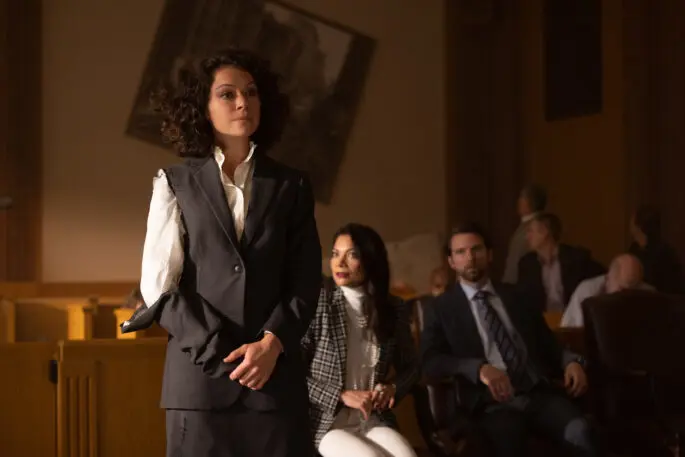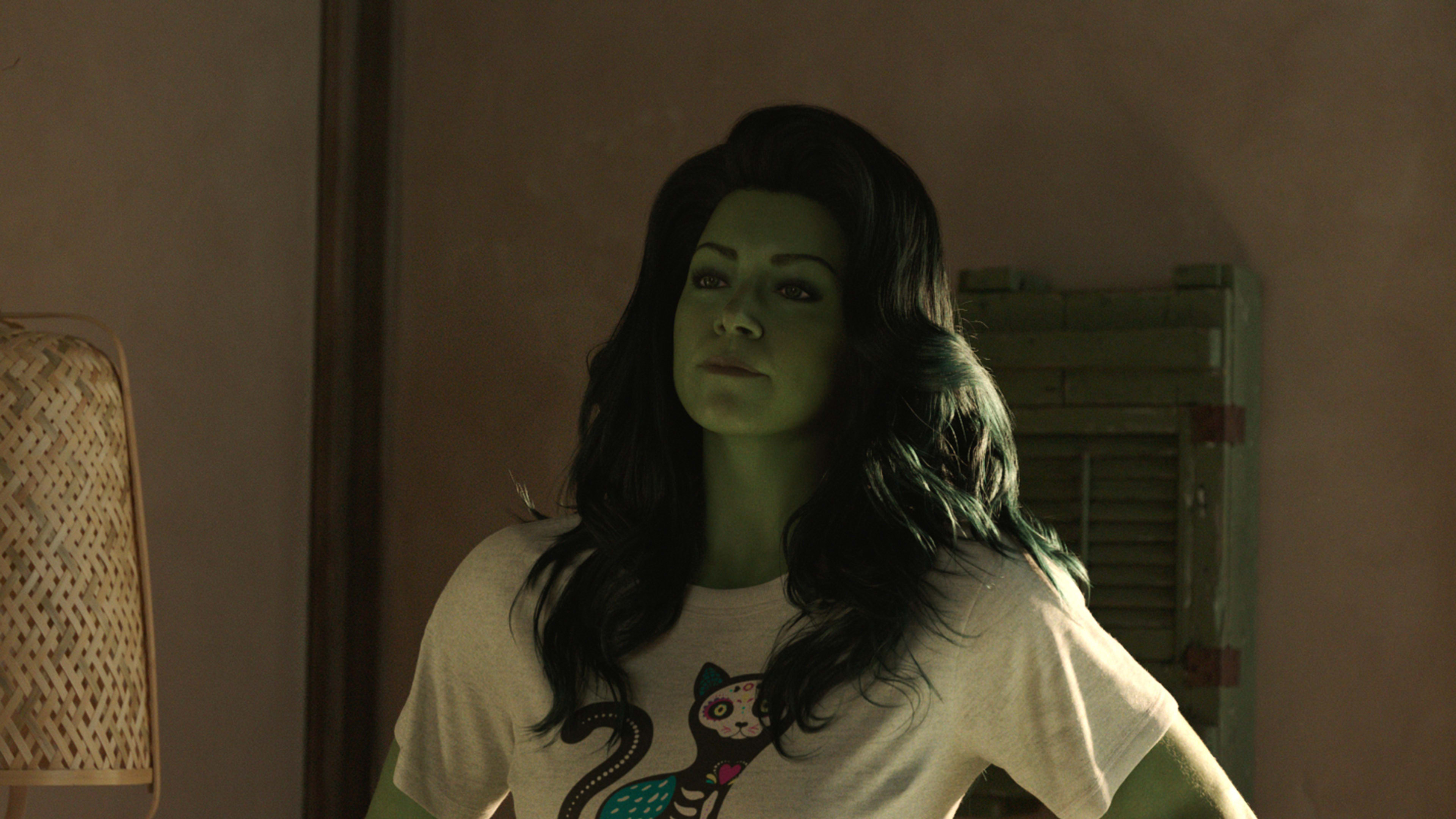Think about any woman in power. As soon as she shows the tiniest glimpse of anger, she is labeled unhinged, too emotional, and unfit for whatever job she has.
A show about a female attorney who is also a Hulk sounds inherently ridiculous. And yet the latest entrant to the Marvel Cinematic Universe offers a nuanced understanding of what it is like to be a woman in the world and workplace. When Jennifer Walters is accidentally turned into a Hulk by her cousin Bruce Banner, she has a lot to figure out.
In She-Hulk: Attorney at Law, she quickly learns that, like her cousin, anger is one of her triggers. This makes sense, because anger is a universal emotion. She-Hulks, Hulks, men, and women, no matter where in the world they live, experience anger. But, if she wants to live a somewhat normal life, Bruce tells her that she will need to learn how to control herself when she feels angry. She scoffs at this and explains that she has to constantly control her anger, that every day there are situations where she is harassed or mansplained to and says nothing so that she won’t “get called emotional or difficult or might just literally get murdered.” That response likely sounded way too familiar to many women.
Green with anger
Women have to constantly control how we express our emotions, especially at work. Sure, we can be cheerful and smiling (because everyone loves it when women smile!) but there are implicit and explicit rules for how we “should act” when it comes to negative emotions. When Jennifer (played by Tatiana Maslany) gets angry, she turns green and busts out of her suit and shoes. Admittedly this isn’t a common issue but women’s anger is often seen as off-putting, scary, and very not feminine.
Think about any woman in power. As soon as she shows the tiniest glimpse of anger she is labeled unhinged, too emotional, and unfit for whatever job she has. Men in the same position are able to yell, curse, and weep because their anger is justified, reasonable, and righteous. This is problematic and ridiculous.
An inordinate amount of time is spent by women trying to perfectly balance themselves to fit in at work and beyond. We are constantly changing, hiding, or tampering down parts of ourselves. I call this tightroping. Some might argue that this is simply what people do to succeed but it goes beyond that and any woman reading this knows that. Tightroping dulls our shine. Tightroping stops us from speaking up and standing out and it wastes a lot of mental energy and time.
So, what does it look like if we stop tightroping? Well, Jennifer Walters is showing us. While presenting her case in court, she is interrupted by a lady villain named Titania (Jameela Jamil). This makes Jennifer understandably angry. At first she tries to suppress her reaction but then she realizes her anger (and the resulting She-Hulk powers) that result are necessary and beneficial in this situation. So, with a little encouragement from her friend and paralegal Nikki (Ginger Gonzaga), she decides to stop tightroping.

She takes off her heels so she doesn’t ruin them and goes full She-Hulk. She gets green, and huge, and scary. People scream. Everyone is afraid. But then she utilizes her particular brand of strength and skills to defeat Titania and save everyone in the courtroom. After the battle, she straightens her (now destroyed) suit jacket and carries on presenting her case. She didn’t tightrope and it was okay. In fact, everyone benefited! This is what I want for all women at work, to stop tightroping and start using all of our superpowers. To make this happen there are two key components: other women and leaders in organizations willing to drive change.
Early in She-Hulk, Jennifer is told by a male colleague that he should take over an important case because she probably can’t handle it. Nikki steps in to tell him off and back up Jennifer and her abilities. Later, Jennifer got the (literal) nod from Nikki to give into her anger because she understood how beneficial it would be. Sometimes that’s all we need. Knowing that other women recognize our unique contributions and are supportive allows us to use whatever we have to succeed-even if it’s unconventional.
Organizations need to recognize that the time women spend tightroping is harming productivity, creating burn out, and hurting the bottom line. To make the necessary changes, companies need to show employees that they are willing to embrace different ideas and ways of thinking. One way to do this is via thoughtful diversity, equity, and inclusion plans that are actually implemented. They also need to be clear about what is unacceptable behavior in the workplace and respond to transgressions appropriately. Excusing inappropriate, sexist, misogynistic behavior sends the signal to every woman that she should keep tightroping because she isn’t valued enough to be defended.
Finding inspiration in She-Hulk isn’t something I expected, but it makes sense. She’s a woman trying to understand her power while managing a variety of challenges and kicking ass at her job. I think that’s what we are all trying to do. So, why don’t we follow her lead? Let’s stop tightroping and get angry.
Tara Ceranic Salinas, department chair of management, law, and ethics and professor of business ethics at the Knauss School of Business at the University of San Diego.
Recognize your brand’s excellence by applying to this year’s Brands That Matter Awards before the early-rate deadline, May 3.
